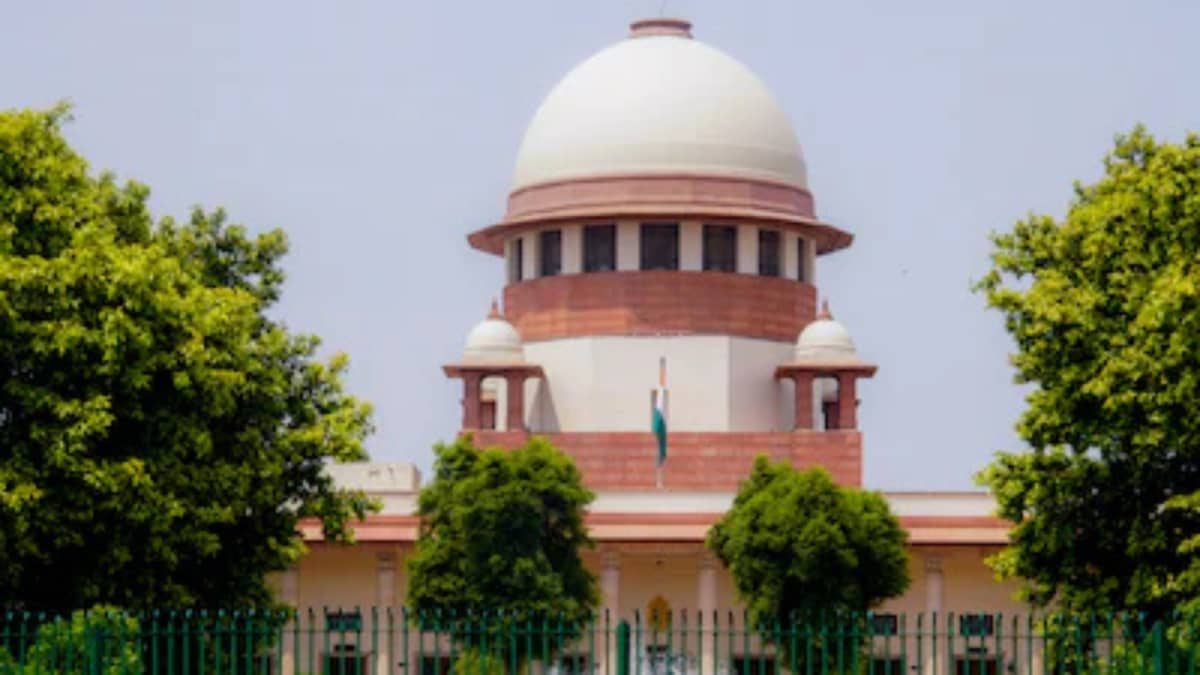Last Updated:
The judgment discussed in detail how courts should treat cases where death follows after a lapse of time

The SC pointed out that the High Court appeared to conflate the offence of attempt to murder with that of murder (PTI/File)
The Supreme Court (SC) recently ruled that the survival of an assault victim for several months after sustaining grievous injuries does not reduce the liability of the accused from murder to attempt to murder.
The Court dismissed an appeal filed by Maniklal Sahu against his conviction while faulting the Chhattisgarh High Court for diluting the charge under Section 302 of the Indian Penal Code (IPC) into one under Section 307.
Recommended Stories
In February 2022, 19-year-old Rekhchand Verma was allegedly dragged to the terrace of his house by Sahu and three others, flung down and then beaten with sticks and fists. He sustained serious spinal injuries and remained bedridden for months. He died in November that year from septicemia, pneumonia and multiple organ complications. At trial, all four accused were convicted of murder and sentenced to life imprisonment.
The High Court, while hearing their appeals, altered the conviction to attempt to murder, noting that Verma had survived for nine months and that his death was due to lack of proper medical treatment. The sentence was reduced to seven years of rigorous imprisonment.
The Supreme Court rejected this reasoning, describing it as a “serious error”. The bench of Justices J.B. Pardiwala and R. Mahadevan observed that the medical evidence clearly established a chain of causation between the assault and Verma’s death. Testimonies of doctors and hospital records showed that septic shock, bilateral pneumonia, paraplegia and infected bedsores were all direct consequences of the spinal cord injury inflicted during the assault.
“We are taken by surprise as to on what basis the High Court recorded a finding that the deceased succumbed due to lack of proper treatment. There is absolutely no evidence in this regard,” the Court said.
The judgment discussed in detail how courts should treat cases where death follows after a lapse of time. The bench noted that Explanation 2 to Section 299 IPC makes it clear that even if death might have been prevented with skillful treatment, the person who caused the bodily injury is deemed to have caused the death. Referring to earlier decisions, including Sudershan Kumar v. State of Delhi, Patel Hiralal v. State of Gujarat and State of Haryana v. Pala, the Court held that complications such as septicemia or pneumonia that arise naturally from the injuries cannot break the chain of causation.
The Court explained that the crucial question is whether the injuries were sufficient in the ordinary course of nature to cause death. If so, the offence falls under Section 302, regardless of whether death occurs immediately or after prolonged treatment. The adequacy of medical care, it said, is not relevant in determining criminal liability. “An
intervening cause or complication is by itself not of such significance. What is significant is whether death was only a remote possibility, or one which would have occurred in due course,” the bench observed.
The Court also pointed out that the High Court appeared to conflate the offence of attempt to murder with that of murder. It reiterated that under Section 307 IPC, intention to kill is the essence of the offence, whereas in murder cases, the focus is on whether the injuries inflicted were sufficient in the ordinary course of nature to cause death. Here, the medical evidence and eyewitness testimony left no doubt that the injuries sustained by Verma were fatal.
Dismissing Sahu’s appeal, the Court confirmed that the trial court had rightly convicted the accused for murder under Section 302 IPC.
About the Author

Salil Tiwari, Senior Special Correspondent at Lawbeat, reports on the Allahabad High Court and courts in Uttar Pradesh, however, she also writes on important cases of national importance and public interests fr…Read More
Salil Tiwari, Senior Special Correspondent at Lawbeat, reports on the Allahabad High Court and courts in Uttar Pradesh, however, she also writes on important cases of national importance and public interests fr… Read More
September 15, 2025, 19:55 IST
Loading comments…
Read More



